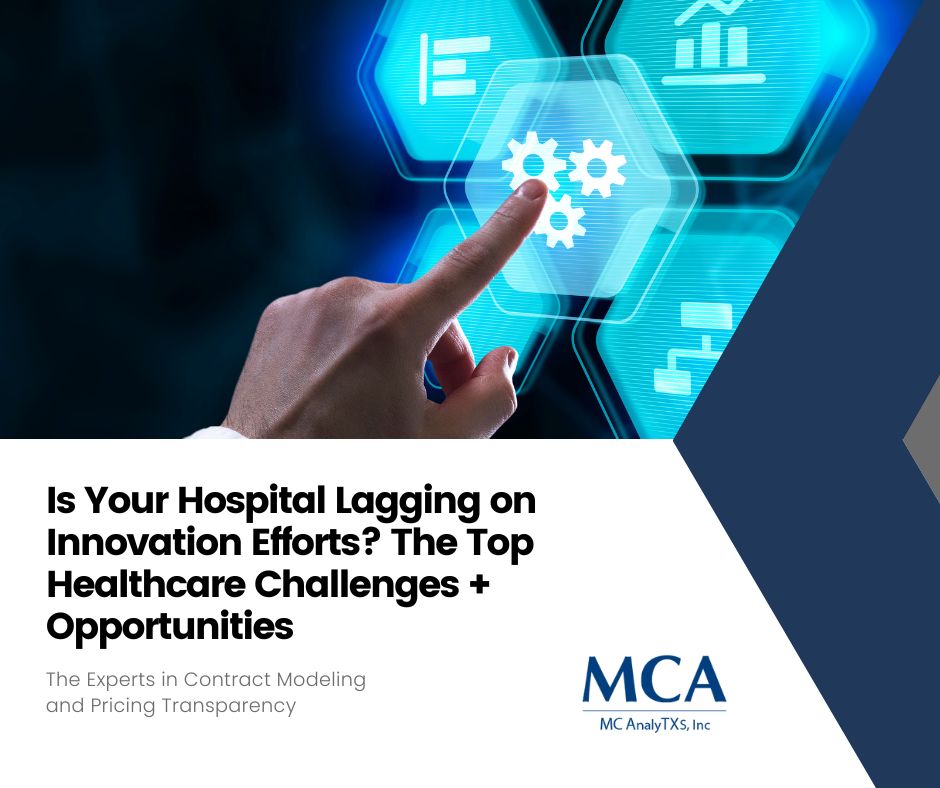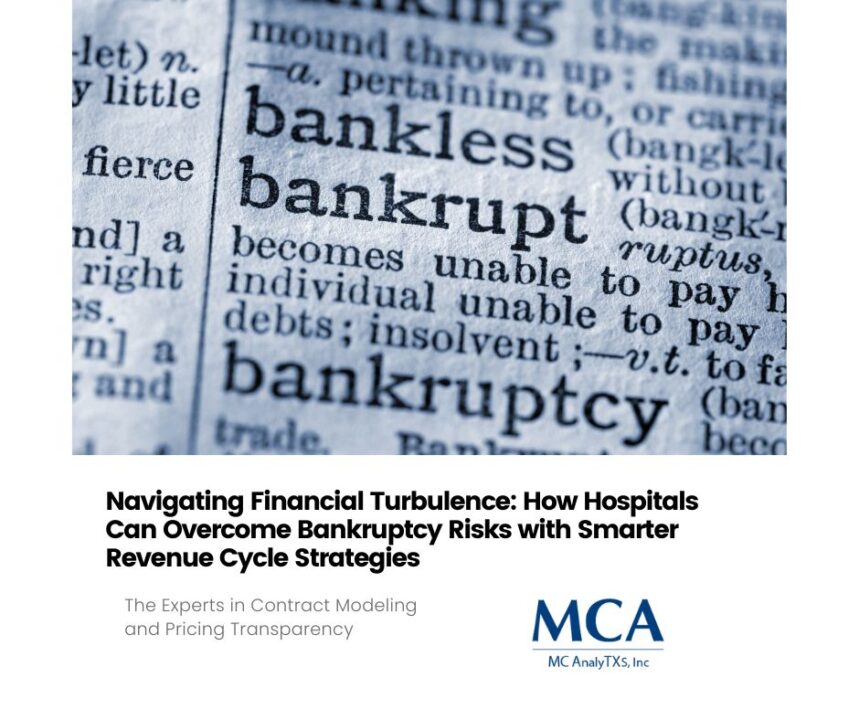
Healthcare Leaders Prioritize New Revenue Cycle Management Tech Investments
March 1, 2024
How to Choose the Right RCM Tool for Your Healthcare Organization
March 6, 2024Is Your Hospital Lagging on Innovation Efforts? The Top Healthcare Challenges + Opportunities
From the adoption of telemedicine to the continuous advancement of medical devices, innovation is redefining the healthcare landscape. However, despite the rapid pace of change, many hospitals find themselves lagging in their innovation endeavors. In this comprehensive article, we’ll explore the primary challenges healthcare providers face and highlight strategic opportunities for driving innovation in a sector that’s fundamental to human well-being.
Why Innovation is Imperative in Healthcare
Innovation has always been central to the mission of healthcare—curing diseases, improving patient outcomes, and enhancing quality of life. Yet, in a world where technological advancements are reshaping every sector, staying ahead has become critical.
For hospitals, the imperative for innovation is two-fold:
- Operational Efficiency: New technologies can streamline processes, reduce errors, and cut costs. These gains translate to more efficient care delivery and better patient outcomes.
- Competitive Edge: In a crowded healthcare market, innovation can be the differentiator that attracts patients and top talents alike. It can also help develop new revenue streams and solidify partnerships.
Innovation is, essentially, a proactive approach to addressing the changing nature of healthcare and ensuring that hospitals remain competitive and relevant in an evolving landscape.
Current Challenges in Healthcare Innovation
The healthcare space is fraught with complex challenges that impede swift innovation. Understanding and addressing these barriers is the first step toward building a healthcare system that’s resilient and forward-looking.
Lack of Interoperability
The inability of different information systems and software applications to communicate is a major roadblock. This hampers the sharing of critical patient data and hinders collaborative care efforts, ultimately impacting patient safety and operational efficiency.
Data Security Concerns
The digitization of health records and the increase in information sharing have raised significant security and privacy concerns. Hospitals face the challenge of maintaining a robust cybersecurity infrastructure that protects sensitive patient data.
Resistance to Change in Traditional Systems
The healthcare industry has a reputation for being slow to change. This resistance is deeply entrenched in the culture and systems of many hospitals, making it difficult to adopt new technologies and workflows.
Regulatory Hurdles
Stringent regulations, such as HIPAA in the United States, can be a double-edged sword. While they protect patient rights and guide ethical medical practices, they also often hinder the quick adoption of innovative solutions.
Opportunities for Innovation in Healthcare
Despite the challenges, there are numerous areas where hospitals can capitalize on innovation to improve patient care and operational effectiveness.
Telemedicine and Remote Patient Monitoring
The pandemic accelerated the adoption of telemedicine and remote patient monitoring, offering a new model of care delivery that’s both convenient and safe. Hospitals can expand their reach and services by investing in telehealth platforms and devices.
AI and Machine Learning Applications
Artificial intelligence and machine learning hold immense potential in diagnostics, personalized treatment plans, and operational optimization. These technologies can process vast amounts of data to identify patterns and insights that human operators might miss.
Wearable Technology Integration
Wearable devices are becoming more sophisticated, capable of monitoring everything from heart rate and blood pressure to oxygen saturation. When integrated into care plans, these technologies enable continuous patient monitoring and the early detection of health issues.
Blockchain for Data Management
Blockchain technology offers a secure and efficient way to manage and share healthcare data. With its principles of decentralized and tamper-proof records, blockchain can help resolve data interoperability and security problems.
Strategies to Overcome Innovation Challenges
Overcoming the barriers to innovation requires a multi-faceted approach that involves not only technological solutions but also cultural and systemic changes within hospitals.
Building a Culture of Innovation
Hospital leaders must foster a culture that encourages and rewards innovation. By empowering staff to contribute their ideas and supporting them with the necessary resources, hospitals can inspire a more innovative mindset.
Investing in Digital Transformation
A key strategy for overcoming the resistance to change is through comprehensive digital transformation. This includes updating legacy systems, adopting cloud-based technologies, and creating a digital roadmap aligned with the hospital’s strategic goals.
Collaborating with Tech Partners
Partnerships with technology companies and startups can provide hospitals with access to cutting-edge solutions that align with their needs. These collaborations can also ease the burden of in-house development and allow hospitals to focus on care delivery.
Prioritizing Cybersecurity Measures
Given the critical nature of health information, cybersecurity must be at the forefront of any innovation effort. Hospitals should invest in the latest security technologies, conduct regular risk assessments, and ensure staff are trained in best practices.
Conclusion
Innovation is at the core of the future of healthcare, promising improved patient care, expansions in medical capabilities, and more efficient delivery. While challenges such as regulatory barriers and cultural resistance may seem daunting, the potential for hospitals to transform their operations and care models is within reach.
By recognizing the current challenges, seizing the opportunities, and implementing strategic measures, hospitals can forge a path as leaders in healthcare innovation. It’s not just a matter of ‘keeping up’ but of driving the change that will lead to better health outcomes for all. Now is the time for healthcare leaders to act, not only for the survival and growth of their institutions but for the sake of the patients who depend on their services.





